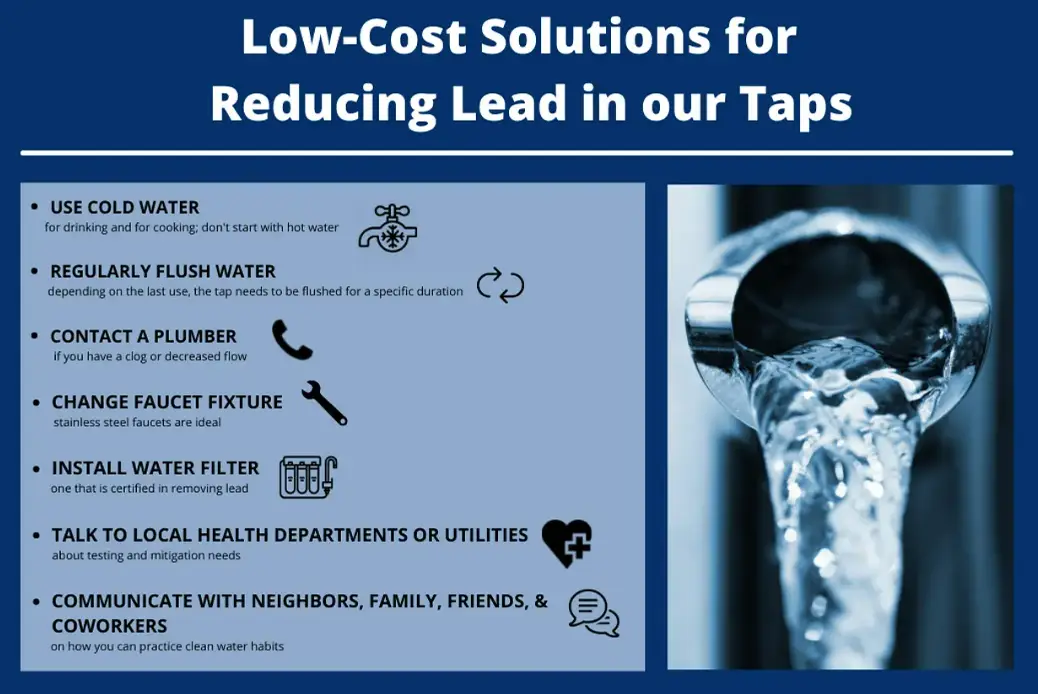Clean Water for US Kids builds on the success of the Clean Water for Carolina Kids program
The Clean Water for US Kids program is built on the love that parents have for their children to thrive, backed up by scientific research. In 2017, program director and RTI researcher Jennifer Hoponick Redmon turned a lack of data about her children’s drinking water at their child care center into an RTI pilot study to help child care facilities and families better protect their children. The 2017 study provided new evidence about the prevalence of lead contamination in drinking water at select North Carolina child care centers. It also demonstrated a participatory science approach to water lead testing that could easily be scaled.
North Carolina used the study findings as scientific justification to pass a rule requiring all licensed child care centers to test drinking and cooking water for lead. The pilot expanded into a grant-funded statewide program and to-date, all operating licensed child care centers have been tested (more than 4,300). Research published in the American Journal of Public Health reported that 12% of facilities had at least one tap that exceeded today’s state lead hazard level of 10 ppb (parts per billion).
Following the state program’s success, the expanded Clean Water for US Kids program is designed to provide water testing support to governmental agencies, child care and school facilities, and water utilities across the nation where children live, learn, and play.
Reducing Lead in Drinking Water Nationally
Lead is a common contaminant in tap water due to the use of lead in piping and plumbing. Current legislation still allows up to 0.25% of lead in plumbing and fixtures and up to 0.2% in solder and flux. However, studies show that lead in drinking water causes permanent harm to children’s brains, including decreased IQ and attention difficulties. There is no safe level of lead exposure for children.
While the North Carolina program was successful, it shed light on a problem that is too often ignored—most drinking water is not checked for lead contamination at the places where children are drinking it. Child care centers, schools, and homes should all check drinking water for lead at the tap. The only way to know if there is lead is to test it. You cannot taste, smell, or see lead.
With over 800,000 child care centers in the United States and over 98,000 public schools, millions of children may be exposed to lead in drinking water while in child care or school.
How the Clean Water for US Kids Program Works
The Clean Water for US Kids lead elimination program empowers staff at schools and child care programs through virtual training. Instead of sending an environmental professional to gather water samples, which is costly and difficult to schedule, participating staff collect and ship water samples collected from each tap using a mail-out test kit with pre-paid return mailing labels. The completed sample kit is picked up by UPS and shipped to the RTI International Trace Metals Laboratory for lead analysis.
The results are communicated to participants along with recommendations for mitigation. The Clean Water for US Kids program guides schools and child care centers on no-cost and low-cost remediation solutions. For example, if a tap has high lead results, a no-cost method the program recommends is discontinuing the use of that tap for drinking and cooking, if other sufficient drinking water faucets are available; Using only cold water for drinking and cooking, even if you are heating it for infant formula or tea, lowers the lead that may get into your water. Low-cost solutions include installing a water filter that is certified to remove lead and replacing your faucet fixture with a new one.
Depending on the state, facilities may receive on-site or remote support if elevated lead levels are found.

Free Drinking Water Lead Testing in Partner States
The U.S. Environmental Protection Agency has established funds to assist with the challenges states are facing regarding aging infrastructure and the environmental hazards that may arise. The Clean Water for US Kids program partners with states, including Georgia and North Carolina to date, to utilize those funds and offer water testing to schools and/or child care centers free of charge. Facilities receive complimentary water tests to help communities better understand and prevent lead exposure risks. Results of each registered school or child care center are publicly available. We can also support utilities and facilities in meeting the revised Lead and Copper Rule testing requirements once they are active in 2024.
Award-Winning Lead Elimination Program
Partnerships have been key to the success and expansion of these programs. RTI International builds strong relationships with federal and state agencies, universities, and non-profit organizations. Recognition for the Clean Water programs include:
- Mutual of America Community Partnership Award 2021 Honorable Mention Recipient
- Harvard University 2020 Roy Family Award for Environmental Partnership
- 2020 Environmental Business Journal Business Achievement Award for Project Merit
Fostering Safer Drinking Water for Children Moving Forward
As the Clean Water for US Kids program looks to the future, we aim to reach more schools, child care centers, homes, and buildings. Kits will soon be available for individuals to take water samples from their homes. Our team is living our mission to improve the human condition through our quest for clean drinking water for all.
Learn More
Read about how this project began, follow its progress, and reach out to our team.







